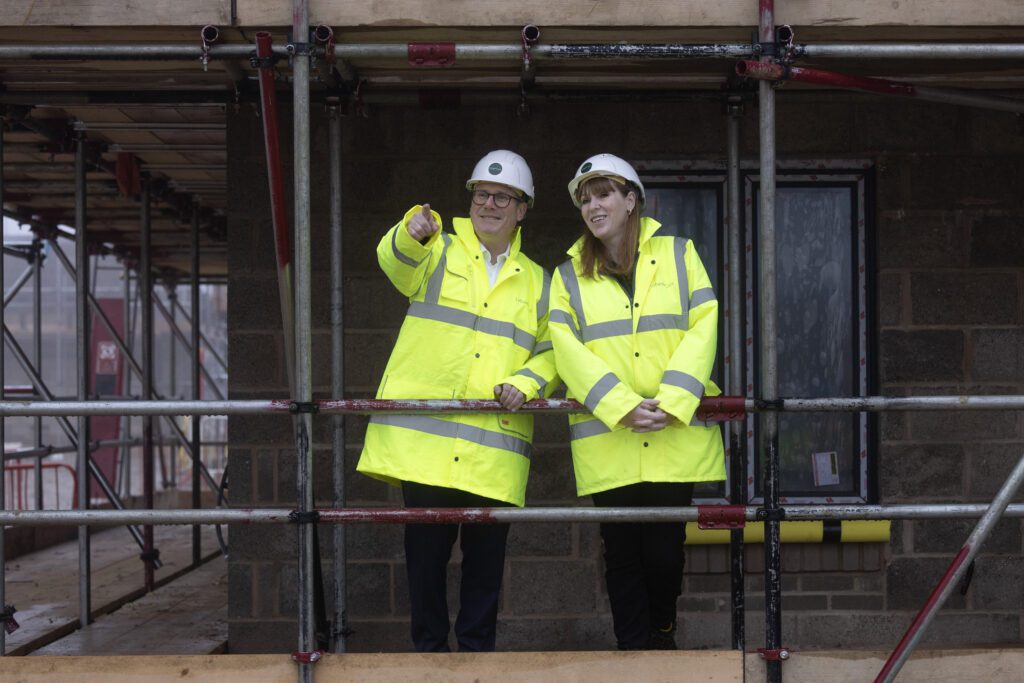
Marc Harris
Co-Chair, Labour YIMBY
The housing crisis in Britain is not accidental. It is the result of choices that were made and not made by governments unwilling to confront the political interests that benefit from shortage.
After 14 years in office, the Conservatives have left behind a planning system in disrepair, homebuilding well below need, and a generation priced out.
The reason is simple, even though the policies are complex: The Conservative Party cannot fix the housing crisis because its base depends on preserving it.
After 14 years in office, the Conservatives have left behind a housing system in disrepair. Planning approvals have fallen. Housebuilding has stalled. First-time buyers are older, fewer, and stretched further. Rents are rising.
Home ownership is increasingly out of reach. This didn’t happen by chance.
It happened because the Conservative Party is structurally incapable of solving the problem.
However sincere a few Conservatives may be about reform, they are always outvoted by a party hardwired to say no.
Their electoral model depends not only on protecting asset values, but also on appeasing a base of suburban NIMBYs who enjoy the benefits of proximity to thriving cities without accepting any of the costs.
The other parties do not offer a viable solution either. Reform UK has shown no interest in serious policy, instead reflexively blaming immigrants at every turn.
The Liberal Democrats talk about affordability while campaigning against new homes in the very constituencies they represent.
And the Green Party, paradoxically, infuriatingly, has repeatedly opposed development of every kind, including the very infrastructure required for their own environmental goals.
In council chambers and planning inquiries, they resist new homes, clean energy projects, and grid upgrades.
This is not a programme for sustainability but the politics of permanent blockage and decline. Labour is different.
We see the housing crisis not as a matter of political management, but as a question of moral mission.
The lack of decent, affordable housing damages lives, constrains growth and undermines the promise that hard work should lead to security.
That is why the Labour Government has already made housing reform a central priority, and it is why the Planning and Infrastructure Bill now going through Parliament is so significant.
This is not another consultation or white paper. It is the most serious legislative effort in a generation to fix the foundations of our planning system.
It re-establishes a strong presumption in favour of development, backed by mandatory targets and clear national policy.
It gives new powers to development corporations to deliver at scale, including land assembly and master planning.
It supports local authorities to plan with confidence and clarity, and it simplifies infrastructure delivery, reducing the duplication and delay that have held back major projects across transport, energy, housing, and more.
Crucially, it also begins to tilt the balance of the system. For too long, planning decisions have placed too much weight on narrow, individual objections and too little on long-term public benefit.
That imbalance has helped drive the paralysis we see today. The new Bill is a recognition that if we want to build, we need a rules-based, strategic approach that allows for certainty for planners, for developers, and for communities.
Taken together with the return of mandatory housing targets, the reform of the infrastructure levy, and a new approach to low-quality grey belt land, Labour’s agenda marks a real break from the short-termism of the past.
This is a government that is prepared to plan and dedicated to deliver.But delivery will not be automatic.
The legislation creates the conditions for success, but it will take political determination to turn those powers into action.
Reform will face opposition. Some will seek to delay it through legal challenge. Others will oppose it from within the system, and there will be calls, as always, to slow down, to water down and to back down.
That cannot happen. If we want to fix the housing crisis, we must see this through, and not just in Whitehall but across the country.
That means being honest about the nature of planning. The system needs space for democratic input, but also space for expert judgement, national goals, and long-term thinking.
The current system offers very little of any of that, and a reformed system must do better.It also means building public confidence.
Growth cannot just be faster – it must be better. That means ensuring new homes come with the transport links, schools, green spaces, and services that communities need.
It means ensuring affordability, sustainability, and quality. It means showing that planning for growth is not just the right thing to do, but also the fair and popular thing.
The opportunity is clear. The Government has the mandate, the policies, and the momentum.
The Planning and Infrastructure Bill is the starting point, and the only question now is whether we have the resolve to finish the job.
The Conservatives will not do it. The Liberal Democrats and Greens won’t either.
Only Labour has the combination of principle, policy, and political will to break the deadlock.The work has begun. The future depends on completing it.
Featured image via Simon Dawson / No 10.


